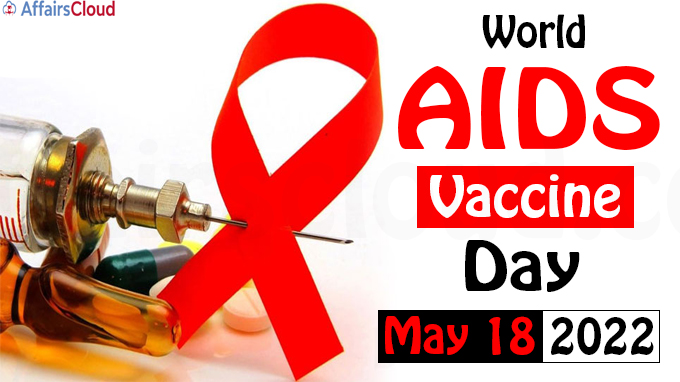
World AIDS Vaccine Day also known as HIV Vaccine Awareness Day(HVAD) is annually observed across the globe on 18th May to create awareness and provide information about Acquired Immuno Deficiency Syndrome (AIDS), a chronic, potentially life-threatening condition caused by the Human Immunodeficiency Virus (HIV) and its immunisation.
- The observance of this day is led by the National Institutes of Health(NIH) – National Institute of Allergy and Infectious Diseases (NIAID), United States of America.
Symbol:
The Red Ribbon is an internationally recognized symbol of AIDS awareness. It is worn in support of people living with HIV and in remembrance of those who have died.
Significance:
i.The day offers a platform to recognise and appreciate the volunteers, community members, health professionals, and scientists who are working together to find a safe and effective preventive HIV vaccine.
ii.The day also aims to educate the communities about the importance of preventive HIV vaccine research.
Background:
i.World AIDS Vaccine Day was conceptualised by the speech of former United States President Bill Clinton on 18th May 1997, at the Morgan State University, Maryland, the United States of America(USA).
ii.The first ever World AIDS Vaccine Day or HIV Vaccine Awareness Day was observed on 18th May 1998, as a commemoration of U.S. President Bill Clinton’s 1997 declaration.
Discovery of HIV:
i.French virologists, Luc Montagnier and Françoise Barré-Sinoussi discovered the HIV that causes AIDS in 1983.
ii.They were awarded the 2008 Nobel Prize in Physiology or Medicine for their work in isolating HIV.
Note: They shared the 2008 Nobel Prize in Medicine with Harald Zur Hausen, who discovered the viral cause of cervical cancer that led to its development.
Key Points:
i.According to the World Health Organisation(WHO), HIV is a global public health issue that has claimed around 36.3 million lives as of November 2021.
ii.It was estimated that around 37.7 million people are living with HIV at the end of 2020, and over two-thirds of them, 25.4 million, are in the WHO African Region.




